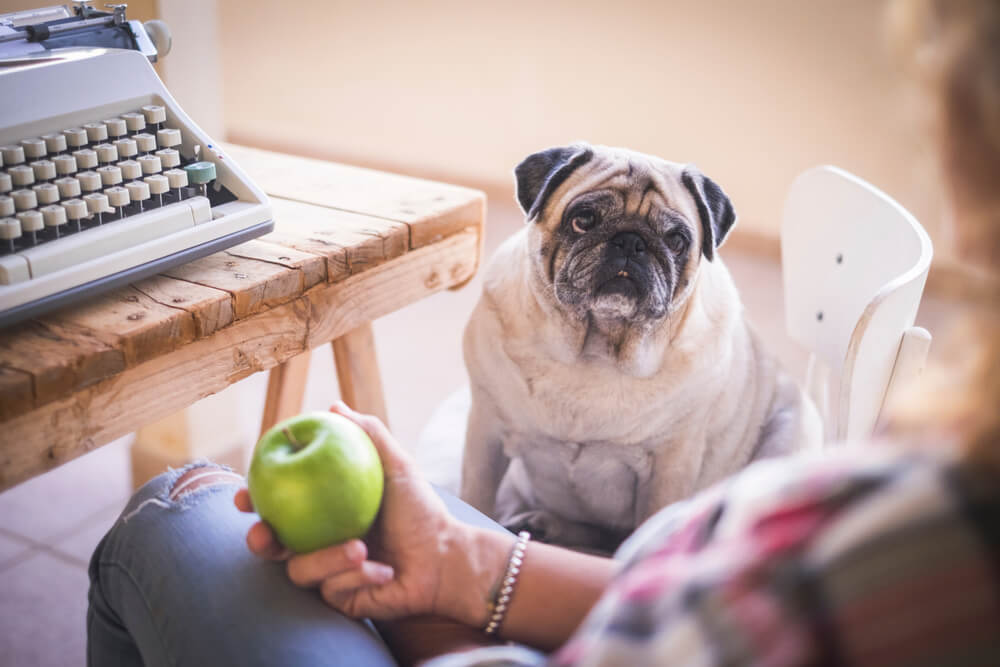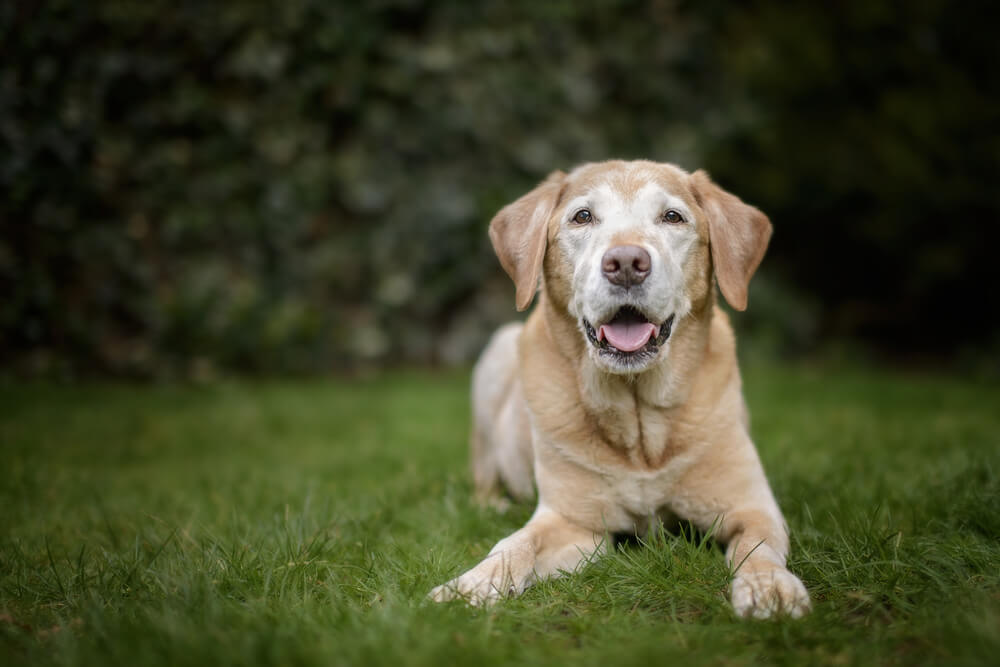Dogs age faster than humans, and most are considered elderly by the time they reach 10 years of age. In fact, large-breed dogs reach this designation at the age of 6 years. While every pet should be evaluated by a veterinary professional at least once a year, senior pets should be seen at least every six months to ensure they are happy and healthy. Our team at Neighborhood Vets Mobile Care would like to educate you on what wellness care involves for your senior dog.
A thorough physical examination of your senior dog
We will inspect every aspect of your senior dog, starting with taking their temperature and measuring their weight, to ensure they are not exhibiting any concerning signs.
- Eyes — We will use an ophthalmoscope to visualize your senior dog’s eyes. As they age, dogs can develop conditions such as cataracts or macular degeneration.
- Ears — We will inspect your senior dog’s ears and assess their hearing, to ensure they are not affected by conditions such as ear infections or hearing loss.
- Mouth — Senior dogs are especially prone to dental disease, and we will thoroughly inspect their mouth, and may recommend a dental cleaning.
- Brain — We will assess your senior pet’s neurologic function and mental status, because changes could indicate age-related disease, such as cognitive dysfunction.
- Skin — We will assess your senior dog’s skin for abnormalities. Changes could indicate problems involving their internal organs, or hormonal issues.
- Chest — Your senior dog’s heart and lungs will be auscultated using a stethoscope, to ascertain conditions such as heart murmurs or arrhythmias, and lung infections.
- Abdomen — We will palpate your senior dog’s abdomen, feeling for tumors and abnormally sized organs.
- Back — We will palpate your senior dog’s back to check for any sign of pain that could indicate a spinal cord problem.
- Limbs — We will assess your senior pet’s gait, looking for evidence of lameness, and palpate their limbs to test for pain. Senior dogs are commonly affected by painful arthritis.
Preventive care for your senior dog
We will ensure your senior dog is current on all their necessary vaccinations. As they age, dogs still need regular vaccinations against distemper, parvovirus, adenovirus, parainfluenza, and rabies. Our veterinary professionals at Neighborhood Vets Mobile Care may also recommend optional vaccines, depending on your senior dog’s circumstances.
Your senior dog should also receive year-round parasite prevention products to protect them against fleas, tick-borne illnesses, heartworm disease, and internal parasites.
Diagnostic testing for your senior dog
In addition to a heartworm test, your senior dog should have wellness tests to check for underlying disease.
- Complete blood count — This test provides information about the numbers, size, and shape of red and white blood cells, and platelets. Abnormalities could indicate conditions such as anemia, infection, or cancer.
- Biochemistry profile — This test provides information about your senior dog’s organs and electrolytes. Abnormalities could indicate issues such as kidney disease, liver failure, or diabetes.
- Urinalysis — This test provides information about the physical and chemical properties of your senior dog’s urine. Abnormalities could indicate kidney issues, bladder stones, or urinary tract infection.
- Thyroid testing — Senior dogs are susceptible to thyroid disease, especially hypothyroidism, which occurs when the thyroid gland does not produce sufficient thyroid hormone. These levels should be tested frequently in senior dogs.
Behavior consult for your senior dog
Cognitive dysfunction, similar to Alzheimer’s disease in humans, is caused by age-related changes to the brain. Signs include disorientation, abnormal interactions with their owners and other pets, disturbances in sleep-wake cycles, house soiling, activity changes, anxiety, and learning and memory changes. Our veterinary professionals will ask for a detailed history, to determine if your senior dog is exhibiting any concerning signs. Stages of cognitive dysfunction decline involve:
- Stage 1 — Senior dogs exhibit changes in sleep patterns, and slight changes in social interactions with owners.
- Stage 2 — Senior dogs are hyperactive at night, and begin to lose house training. They will also start to require special care.
- Stage 3 — Senior dogs exhibit dramatic behavior problems, including aimless wandering, barking through the night, lack of responsiveness to their family, and significant house soiling.
Dietary consult for your senior dog

Senior dogs are more prone to obesity, which can predispose them to serious health problems, such as diabetes, arthritis, and cancer. Based on your senior dog’s weight, body condition, and activity level, our veterinary professionals will determine how many daily calories they require. Your senior dog’s medical conditions will also be considered when formulating a diet. Our veterinary professionals will devise a diet plan that ensures your dog’s nutritional needs are met, without adding excess calories or fat.
By catching issues early, your senior dog’s golden years can be better managed to help ensure their quality of life is preserved for as long as possible. If you would like to schedule your senior dog’s wellness visit, do not hesitate to contact our Fear Free team at Neighborhood Vets Mobile Care.

